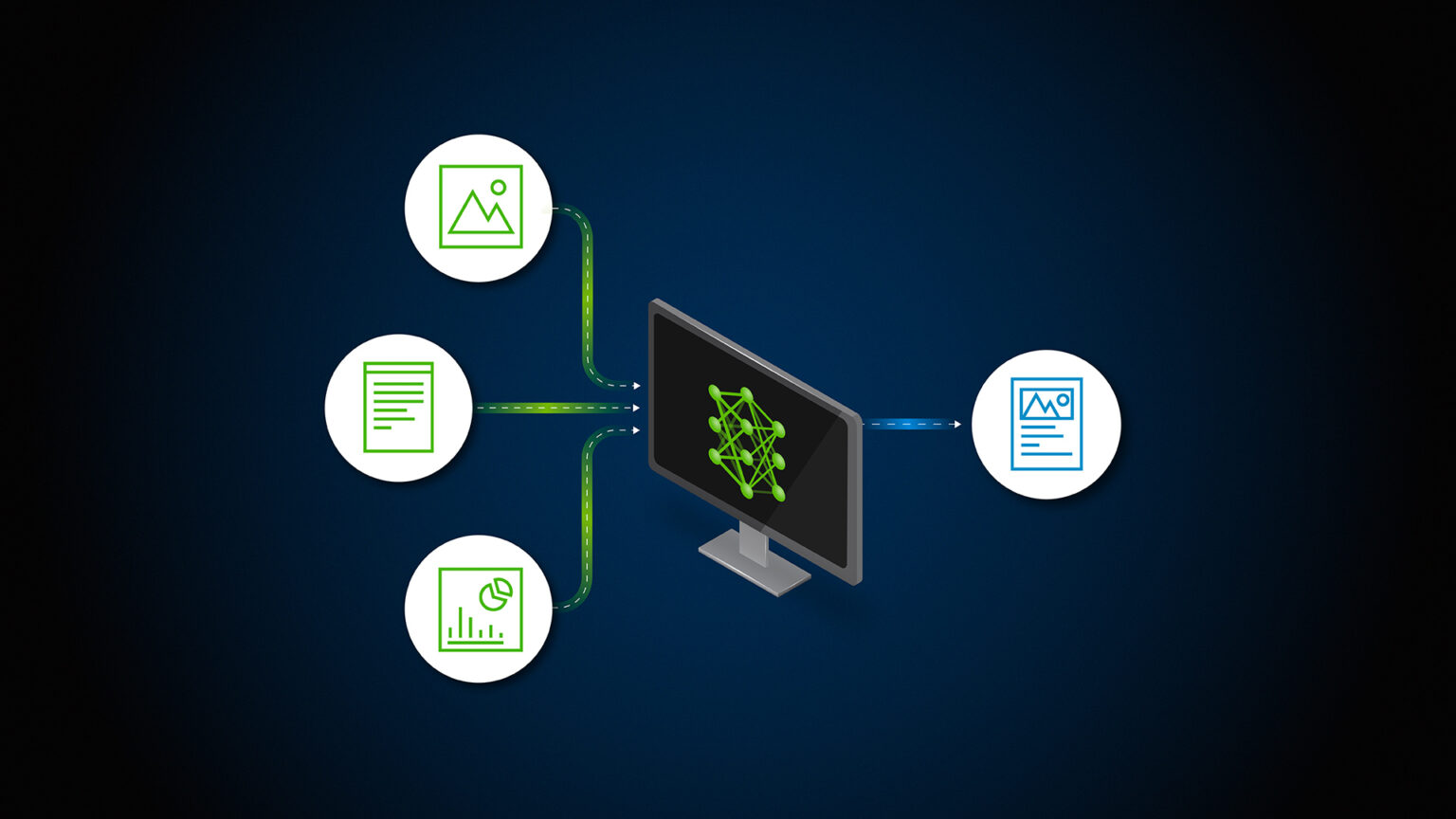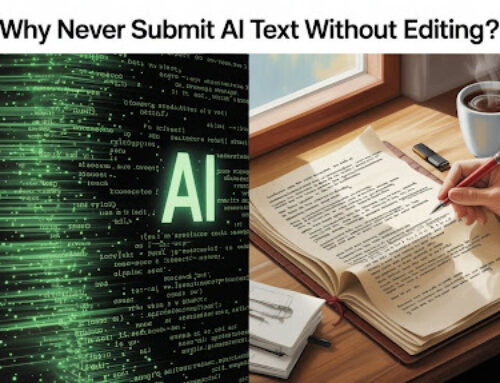With technology advancing rapidly, developers are constantly searching for ways to code faster and more efficiently. Generative AI tools like GitHub Copilot and OpenAI’s Codex have emerged as game-changers in the coding world. These tools can suggest code snippets, complete lines, and even help debug errors. But while generative AI tools are exciting, they also come with their limitations. How well do they actually work for code completion and bug fixing? Let’s dive in and take a closer look.

What is Generative AI in Coding?
Generative AI for code completion is like having a helpful friend for coding by your side! Whether you’re just starting or already have experience, this code assistant makes coding easier. Imagine working in your programming language like Python or Java, and you don’t need to remember every little syntax detail. Generative AI tools suggest the next lines of code for you, so you can focus on building things without getting stuck. Plus, with AI-powered code suggestions, you save time and even pick up best practices along the way.
These AI tools work with a strong AI model that’s trained on real source code and different use cases. Tools like GitHub Copilot and Visual Studio Code extensions are great examples, they give you instant code snippets and completion ideas to help you generate code faster. It’s like having a guide to help you write code smoothly and correctly. With these AI coding tools in your toolkit, you can create code that’s simple, efficient, and easy to understand!
How Code Completion Tools Save Developer Time
Generative AI for code completion is a big help for developers, saving them time by handling repetitive coding tasks. With the ability to use AI, developers get quick suggestions to suggest code and complete code blocks. These AI-powered code completion tools work like helpful guides, suggesting solutions based on the task at hand. This makes the whole coding experience faster and easier, as generative AI coding tools handle smaller coding details, letting developers focus on more important work.
Some popular tools like Vertex AI and Watsonx Code as well as other Anyscale alternatives Assistant bring advanced generative AI applications that make ai code generation faster. These AI assistants can even generate code from natural language prompts, making coding easier to learn. Here’s how generative AI for code completion boosts productivity:
- Suggest code snippets to reduce typing time.
- Quickly provide code from natural language prompts to make coding easier.
- Help in completing code development tasks without delays.
- Improve code quality by recommending best practices.
By using generative AI for code completion, developers can code faster and follow best AI practices. With AI technology and features like generative AI for code completion and code generator tools, code development becomes quicker and smoother, while still maintaining high quality.
The Evolution from Simple Autocomplete to Smart Code Completion
The journey from simple autocomplete to generative AI for code completion has transformed coding. Where early autocomplete tools only suggested basic text completions, AI-driven code tools now provide developers with smart, context-aware suggestions that fit the specific lines of code they’re working on. Today’s tools don’t just predict words but offer full code recommendations and even assist with debugging and code explanation.
Real-Time, Smart Suggestions
Modern generative AI for code completion tools like Tabnine and IBM Watsonx Code Assistant go far beyond simple predictions. They offer real-time code suggestions using publicly available code from GitHub repositories to generate code snippets tailored to the developer’s needs. This makes coding smoother by suggesting relevant code snippets and even helping to produce high-quality code. In tools like Visual Studio Code, these AI tools for coding help developers work faster and more accurately.
Enhanced Code Generation Capabilities
With generative AI for code completion, tools like Copilot can generate code based on source code to generate code effectively. This includes code produced by generative AI that can be directly integrated into projects. These tools are able to offer accurate code suggestions by learning from publicly available code from GitHub and other repositories. This approach allows for code completion capabilities that can be used in various environments, including Code Assistant for Red Hat and Code Assistant for Z.
Improving Code Quality and Efficiency
Thanks to advanced completion APIs and smart algorithms, generative AI for code completion now provides much more than simple suggestions. The code produced by generative AI tools speeds up the development process and helps create high-quality code. These tools not only let developers code quickly but also maintain quality by suggesting accurate code. They’re a major help in making coding more accessible, efficient, and tailored to specific tasks, allowing developers to focus on creating rather than just typing.
How Effective Are AI Models Like Copilot in Understanding Complex Project Contexts?
Generative AI tools are trained on large datasets and excel at recognizing coding patterns. However, these models often lack a deep understanding of complex project contexts. They don’t grasp the specific goals, architectural constraints, or long-term requirements of a project, leading to code suggestions that might not fully align with a project’s broader vision.
Here are some of the risks related to security vulnerabilities when using AI to generate code for complex projects:
- Lack of Secure Coding Awareness
AI tools like Copilot may suggest code without full security checks, leading to risks like SQL injection or XSS. AI-generated code needs careful review to meet security standards. - Risk of Outdated or Insecure Patterns
AI models are trained on large datasets, including older data, so they might suggest outdated security practices. Developers should review these suggestions to ensure modern standards are met. - Limited Project-Specific Security Understanding
AI offers useful code generation but lacks awareness of a project’s specific security needs, which can be risky for sensitive applications. - Over-Reliance on AI
Relying too much on AI to generate code may reduce manual checks, leading to hidden vulnerabilities. A balance of AI and manual review is crucial. - Challenges with New Security Threats
Since AI models learn from past data, they may miss newer security risks, making it essential for developers to stay updated. - Inconsistent Security Standards
AI tools might not follow strict security guidelines like OWASP if these aren’t fully in their training data, increasing compliance risks.
Here’s what Abhinav Girdhar, says about it
“AI models like Copilot can generate relevant code snippets based on extensive training data but often lack a comprehensive understanding of the entire project.
They may provide useful suggestions, but these may not always align with the specific logic, frameworks, or intended user experience of a given project.
What risks are associated with security vulnerabilities when relying on AI-generated code?”
What Are the Limitations of Using Generative AI for Code Completion and Bug Fixing?
Generative AI for code completion is impressive when it comes to automating repetitive coding tasks and offering real-time suggestions. However, it’s not without its challenges. Here are some areas where it might struggle.
1. Lack of Understanding of Complex Contexts
Generative AI tools are trained on huge datasets of code, but they don’t always understand the specifics of a given project. This can lead to suggestions that might look right but aren’t fully compatible with the project’s needs.
Here’s what Abhinav Girdhar, Founder of Appy Pie, says about it:
“Generative AI often struggles with understanding complex project contexts and requirements, leading to inappropriate code suggestions. It may not detect all types of bugs, especially those related to logic or context. The quality of AI-generated code can vary, potentially ignoring best practices or coding standards. AI tools might overlook external dependencies, resulting in incomplete solutions that can break within larger systems.”
Abhinav highlights a critical point here: the limitations of generative AI often stem from its lack of deep project-specific understanding. This means developers still need to monitor and refine the code suggestions made by AI.
2. Variability in Code Quality
The quality of code generated by AI can be inconsistent. Sometimes, AI might produce well-structured and efficient code, but at other times, it could suggest inefficient or even redundant solutions. This variability can slow down the coding process rather than speed it up.
3. Inability to Detect All Bugs, Especially Logical Errors
AI-based code completion tools can help catch syntactical errors, but they may miss logical bugs. Logical bugs require an understanding of how different parts of the code interact, something AI often lacks. Logical issues that involve specific project workflows or require nuanced understanding may slip through AI’s radar.
According to Ally, Account Executive at Pearl Lemon Group:
“Generative AI tools like Copilot are great for speeding up repetitive tasks, but they do have limitations. One key issue is that AI often lacks an understanding of the broader project context. It might generate code that’s syntactically correct but doesn’t fully align with the architectural design or functional requirements of the project.
When it comes to bug fixing, AI can struggle with more complex or nuanced issues, especially those involving multiple systems or components. AI tends to suggest common solutions, which may not be the most creative or optimal. It can also miss important edge cases that a human developer would likely catch.”
Ally’s perspective reminds us that while AI can be a helpful tool, it doesn’t have the comprehensive understanding of a skilled developer, especially when addressing intricate or multi-component issues.

What Risks Are Associated with Security Vulnerabilities When Relying on AI-Generated Code?
One of the biggest concerns with AI-generated code is security. AI tools aren’t always trained to recognize potential security threats, such as SQL injection vulnerabilities or unsafe handling of user inputs. Relying too much on AI suggestions could lead to security weaknesses that make the code more susceptible to attacks.
According to Ally from Pearl Lemon Group
“One of the biggest risks with AI-generated code is the potential for security vulnerabilities. AI models are trained on large datasets, and sometimes they suggest code that contains outdated or insecure patterns. This can open up vulnerabilities like SQL injection or cross-site scripting (XSS).
AI tools may also not be fully aware of secure coding practices, especially when it comes to handling sensitive data or niche security requirements. Without a thorough review process, AI-generated code can introduce risks that aren’t immediately obvious but could be exploited later.”
Here are some of the risks associated with relying on AI-generated code for security:
1. Not Catching Security Threats Properly
AI tools generate code by looking at patterns in old data, which may not include the latest security practices. This can lead to risks like cross-site scripting (XSS) and SQL injection if the code doesn’t handle inputs properly. AI might miss these issues, so developers need to review the code carefully to ensure security standards are met.
2. Repeating Insecure Code Patterns
Since AI relies on older code for training, it can repeat outdated or unsafe coding practices. For instance, it might suggest weak encryption methods or unsafe HTTP protocols. This can be risky, especially if developers rely on AI-generated code without verifying it.
3. Not Understanding Application Context
AI tools lack the context or background of an application’s security needs. For example, AI might not handle sensitive data securely if it doesn’t “know” the full security requirements of the app. Developers need to guide the AI and add extra security for data protection if required.
4. Not Following Secure Coding Standards
Security standards, like the OWASP guidelines, help protect applications from common threats. AI tools may not follow these standards strictly, especially if they haven’t been trained to do so. This makes it essential for developers to review and adjust AI-generated code to follow secure practices.
5. Too Much Trust in AI, Less Manual Checking
AI tools are there to assist, not replace developers. If developers rely too much on AI and skip manual checks, it could lead to hidden security issues that attackers can exploit. It’s important to review AI-generated code thoroughly.
6. Privacy and Data Protection Issues
AI-generated code might not always protect sensitive information properly. If AI isn’t trained to prioritize data protection, it may not suggest secure data storage or encryption. This can lead to privacy issues and may violate data protection rules, especially for apps handling personal or confidential information.
7. Not Adapting to New Threats
Security risks change frequently, with new ways to attack applications emerging all the time. AI models trained on older data may not catch these new risks. Without regular updates, AI tools might continue to suggest insecure coding practices, increasing the chance of attacks through newer threats.
8. Risks in Automated Testing and Deployment
AI can help with codeless automation testing and deployment, but this might lead to untested or vulnerable code reaching production. AI might not catch all unique security cases, and without proper checks, it can lead to security issues in live applications.
Will Generative AI and AI Coding Tools Replace Human Coders?
The question of whether generative AI for code completion will replace human coders has sparked quite a debate. Generative artificial intelligence can certainly help developers write code faster and more efficiently. It can also generate code snippets, handle repetitive tasks, and even suggest code patterns based on existing code. However, coding is more than just writing lines of code—it involves creativity, problem-solving, and an understanding of the big picture, which AI cannot fully achieve yet.
Instead of replacing human coders, AI-generated code tools are more likely to become strong helpers in the coding process. With tools in code editors like Visual Studio Code, AI can suggest improvements, spot code for vulnerabilities, and provide code suggestions based on previous work. AI also helps developers write better code by analyzing code data and providing smart insights. While advanced code completion can boost productivity, human developers are still needed to guide the AI, manage complex logic, and add the personal touch that’s crucial for unique and efficient software.
